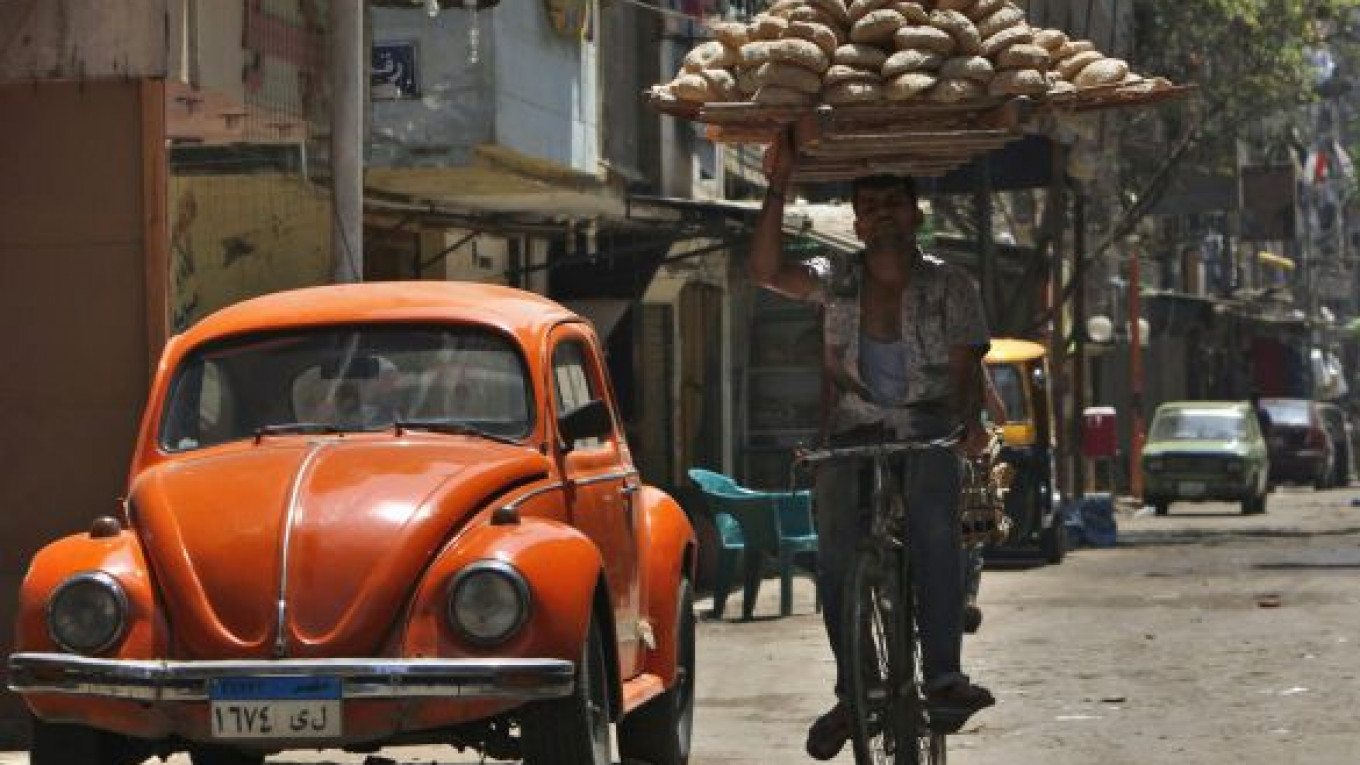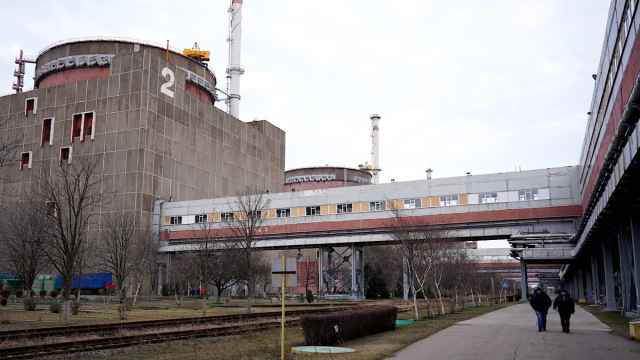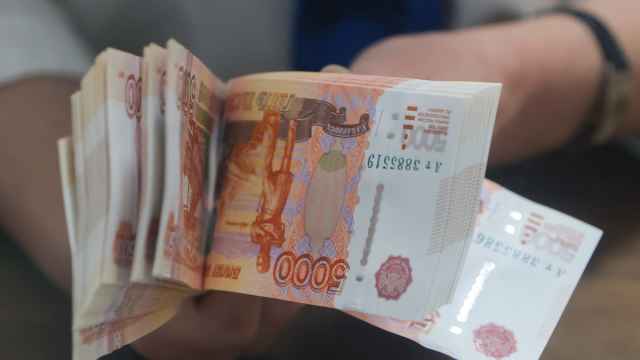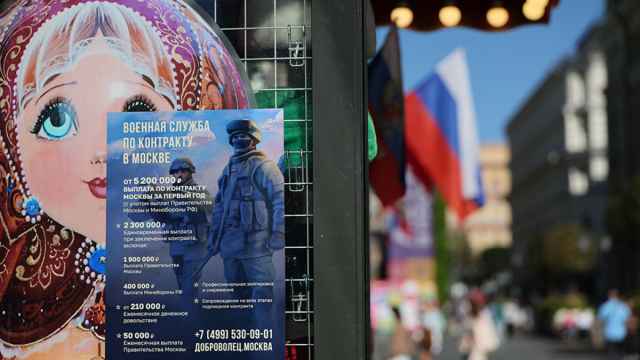CAIRO — Russia's temporary ban on grain exports is stirring both political and economic anxiety in Egypt, the world's largest wheat importer, where half of the 80 million residents rely on subsidized bread to survive.
Russia, which supplies more than 50 percent of Egypt's wheat imports, had announced a temporary ban on grain exports earlier this month because of a drought. In addition, Ukraine on Tuesday said it plans to halve grain exports for the rest of the year.
The Russian move predictably sent global grain prices higher. But for Egypt, it carried serious political and economic implications, and it came at a delicate time for a government already accused of corruption and ignoring the needs of the poor.
Protests over increasing food prices have been rife ahead of upcoming parliamentary elections this year and presidential elections next year, giving rise to concerns about who will steer a nation that has known one ruler for almost 30 years.
On Monday, a 24-year-old man known to suffer a heart condition died while waiting in a chaotic bread line outside a bakery in southern Egypt. Authorities said he died after a two-hour wait in the line on a particularly hot day.
The media called him "the first victim" of bread lines in the holy month of Ramadan, when consumption of bread and baked sweets are at an all-time high.
"Subsidized bread is the most important thing the government gives to the people," said Egyptian economist Mohammed Abu Pasha of investment house EFG-Hermes. "It is a very basic and sensitive issue, and the government had to act quickly to reassure people. It is not about elections; it's about possible social unrest."
Bread is one of the few affordable staples in the country — costing the equivalent of 1 cent per round loaf.
Its subsidization, for decades, was one of the many unwritten "understandings" between the government and the country's poor majority, even though food subsidies cost the country $3 billion per year — or roughly 65 percent of what it made in fiscal 2009 from the Suez Canal, one of its key foreign-currency revenue sources.
Along with education and health care, the government's tacit pledge to help shoulder the costs of key goods was integral to its ability to appease a nation where officials are widely seen as corrupt, favoring wealthy business interests at the expense of the nearly 50 percent of Egyptians who live on less than $2 per day.
The government has been burned by bread before.
When it attempted to lift subsidies in 1977, deadly riots erupted. Authorities backed down and called in the army to maintain order in major cities.
The lesson from those bloody days in January, 33 years ago, resonates to this day.
Reminders have since emerged.
In 2008, at least seven people died in fights in bread lines that formed because of shortages.
The shortages were so acute that President Hosni Mubarak, Egypt's ruler for the past 28 years, ordered army- and police-run bakeries to step up production of the subsidized loaves to meet demand.
Small — though seemingly daily — protests over the past few months over rising prices are getting increasing media attention, and authorities would face serious challenges in keeping them from spreading.
The Russian ban also puts Egypt in a possible financial squeeze.
Trade Minister Rachid Mohamed Rachid said the ban would cost the country up to 4 billion Egyptian pounds ($700 million) in additional subsidies this current fiscal year to keep the price of bread unchanged. Officials had already planned on trying to trim the budget deficit, in part by targeting subsidies.
The ban's timing, albeit coincidental, forced the government to act with uncharacteristic swiftness to alleviate concerns.
The holy month of Ramadan was about to start, and with it came a customary surge in food prices and consumption.
Egypt reached out to other suppliers to make up the shortfall and assured residents that it had a five-month stockpile. Prices would stay unchanged, officials promised.
Egyptian media have picked up on the issue, using the ban to revive old debates. Should Egypt, once a major regional agricultural center, grow more of what it needs? How viable is it to maintain the expensive but politically sensitive bread subsidies? What can be done to reduce waste and fight bread-related corruption?
Poet-turned-political commentator Farouq Gweidah wrote in the Al-Shorouk daily on Sunday that the crisis over the Russian grain ban exposed the country's failure in achieving food self-sufficiency and that there should be a state policy on growing certain strategic crops.
"Who could believe that Egypt, the gift of the Nile and the land of agriculture, is no longer able to ensure that its people have bread to eat?" he wrote in an opinion piece.
A Message from The Moscow Times:
Dear readers,
We are facing unprecedented challenges. Russia's Prosecutor General's Office has designated The Moscow Times as an "undesirable" organization, criminalizing our work and putting our staff at risk of prosecution. This follows our earlier unjust labeling as a "foreign agent."
These actions are direct attempts to silence independent journalism in Russia. The authorities claim our work "discredits the decisions of the Russian leadership." We see things differently: we strive to provide accurate, unbiased reporting on Russia.
We, the journalists of The Moscow Times, refuse to be silenced. But to continue our work, we need your help.
Your support, no matter how small, makes a world of difference. If you can, please support us monthly starting from just $2. It's quick to set up, and every contribution makes a significant impact.
By supporting The Moscow Times, you're defending open, independent journalism in the face of repression. Thank you for standing with us.
Remind me later.






